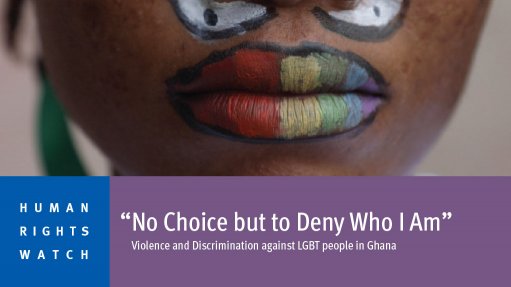
Ghana has a mixed record on its treatment of lesbian, gay, bisexual and transgender (LGBT) people. It criminalizes “unnatural carnal knowledge” in section 104 (1) (b) of its Criminal Offences Act, which the authorities interpret as “penile penetration of anything other than a vagina.” However, the law is a colonial legacy that is rarely, if ever, enforced, and unlike several of its neighbors, Ghana has not taken steps in recent years to stiffen penalties against consensual same-sex conduct or to expressly criminalize sexual relations between women. At least two government agencies, the Ghana Police Force and the Commission on Human Rights and Administrative Justice (CHRAJ), have reached out to LGBT people and taken proactive steps, including through providing human rights training workshops to help ensure their protection. Nevertheless, LGBT people are very frequently victims of physical violence and psychological abuse, extortion and discrimination in many different aspects of daily life, because of their sexual orientation and gender identity.
This report is based on interviews conducted between December 2016 and February 2017 in Accra (Ghana’s capital), Tamale (the capital of the northern region of Ghana), Kumasi (the capital of Ashanti region in southern Ghana) and Cape Coast (capital of Central region in southern Ghana) with 114 Ghanaians who self-identify as LGBT. It documents the human rights impact of section 104(1)(b) of the 1960 Criminal Offences Act (Act 29) on the lives of LGBT people in Ghana. Despite the rare, if any, prosecutions under this provision, Human Rights Watch found that the criminalization of adult consensual same-sex conduct contributes to a climate in which violence and discrimination against LGBT people is common. The retention of section 104(1)(b) – commonly referred to as the anti-gay law – is often seen as tacit state approval of discrimination, and even violence, on the basis of real or imputed sexual orientation and gender identity. The law also contributes to a social environment in which there is pervasive violence against lesbian, bisexual and gender non-conforming women in the home and LGBT people more generally in communities where they live.
Report by the Human Rights Watch